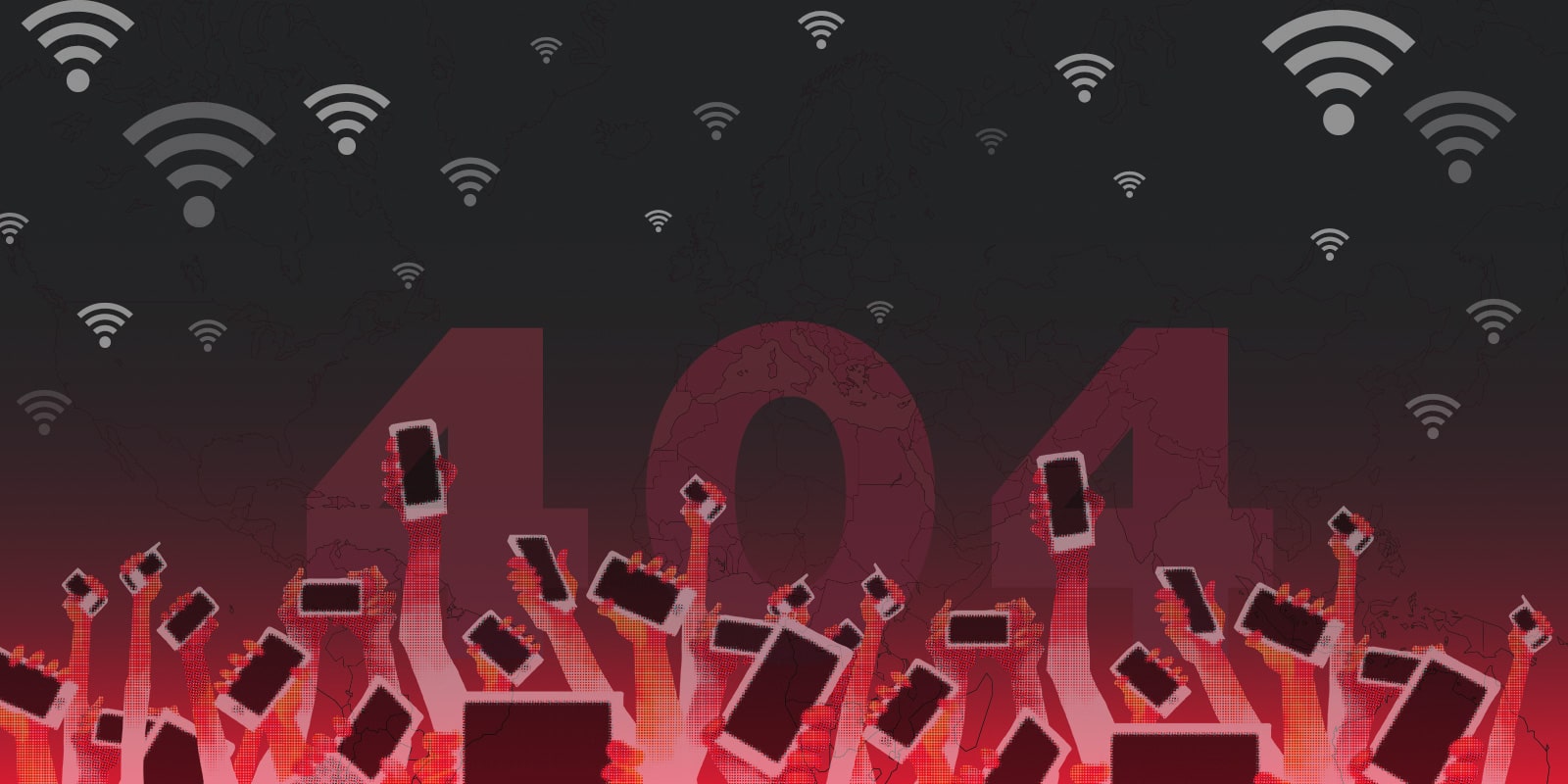March 19, 2021
#KeepIton: Open letter to keep the internet open and secure during protests in Jordan
Your Excellency Bisher Al-Khasawneh, Prime Minister of Jordan
Cc: His Excellency Dr. Ghazi Al-Jobor, Chairman of the Board of Commissioners, Telecommunications Regulatory Commission
We, the undersigned organizations and members of the #KeepItOn coalition — a global network that unites over 240 organizations from 105 countries that work to end internet shutdowns globally — urgently appeal to the Government of Jordan to ensure that the internet, social media platforms, and all other communication channels remain open, secure, inclusive, and accessible throughout this period of ongoing demonstrations.
Since 2018, we have documented a series of internet disruptions in Jordan, specifically of live streaming services such as Facebook Live, during public demonstrations and protests. Notably, we have observed throttling of services during the late 2018 and early 2019 anti-austerity protests, the 2020 teachers union protests, and this week’s protests triggered by the Al-Salt hospital incident. Internet throttling is a form of internet shutdown, and it carries the same level of risk to citizens’ safety, public participation, access to information, and human rights.
Access to the internet and social media platforms plays a critical role for citizens’ to communicate, seek timely and accurate information, organize, report and document events, exercise their right to freedom of expression, and hold governments to account. In the midst of the COVID-19 pandemic, the internet has become vital for people’s livelihoods and well-being. Therefore, the #KeepItOn coalition appeals to you to ensure that access to the internet and all digital communication platforms remain undisrupted, open, and secure for the people of Jordan.
Internet shutdowns violate fundamental human rights such as freedom of expression and opinion, access to information, press freedom, and freedom of peaceful assembly. The Human Rights Council Resolution 44/12 strongly condemns the use of internet shutdowns to “intentionally and arbitrarily prevent or disrupt access to or dissemination of information online” and calls on states to refrain from those practices. The U.N. Secretary-General has also affirmed that: “Blanket internet shutdowns and generic blocking and filtering of services are considered by United Nations human rights mechanisms to be in violation of international human rights law.”
Throttling the internet during a deadly pandemic adds fuel to the fire. Disrupting the free flow of information online has been documented to exacerbate existing tensions in society, and increase the likelihood of violence. It also hinders the ability to document and report on potential violence and human rights violations perpetrated by both state and non-state actors against people.
Jordan has ratified regional and international frameworks such as the legally-binding International Covenant on Civil and Political Rights (ICCPR), under which it’s obligated to provide for the protection and promotion of those fundamental rights, both offline and online.
We, therefore, call on the Government of Jordan to uphold its commitments and:
- End the practice of internet throttling and disruption of internet services, including social media and other digital communication platforms, and ensure those to remain open, accessible, inclusive, and secure especially during national events of protests and unrest;
- Clarify the mechanisms and reasons behind these disruptions, and call for more transparency on how the internet is controlled in Jordan; and
- Order telecommunications companies and internet service providers to inform the public and internet users of any potential disruptions and to take all reasonable steps to fix any identified disruptions likely to impact the quality of service they receive.
Sincerely,
Access Now
Advocacy Initiative for Development (AID)
African Freedom of Expression Exchange (AFEX)
Africa Open Data and Internet Research Foundation (AODIRF)
Afrotribune
Blueprint for Free Speech
Centre for Media Studies and Peacebuilding (CEMESP-Liberia)
Collaboration on International ICT Policy for East and Southern Africa (CIPESA)
Digital Rights Coalition – Malawi
Electronic Frontier Foundation (EFF)
Gambia Press Union (GPU)
Give1Project Gambia
Jordan Open Source Association (JOSA)
Innovation for Change South Asia
International Press Centre (IPC)
Internet Protection Society (Russia)
Paradigm Initiative (PIN)
PEN America
RedesAyuda
Reporters Without Borders (RSF)
Sassoufit collective
SMEX
Southeast Asia Freedom of Expression Network (SAFEnet)
Tor Project
Ubunteam
Women of Uganda Network (WOUGNET)
Women ICT Advocacy Group (WIAG)
Wikimedia Community User Group Uganda
Wikimedia France
YODET
*An internet shutdown is defined as an intentional disruption of internet or electronic communications, rendering them inaccessible or effectively unusable, for a specific population or within a location, often to exert control over the flow of information. See more at: https://www.accessnow.org/keepiton.
